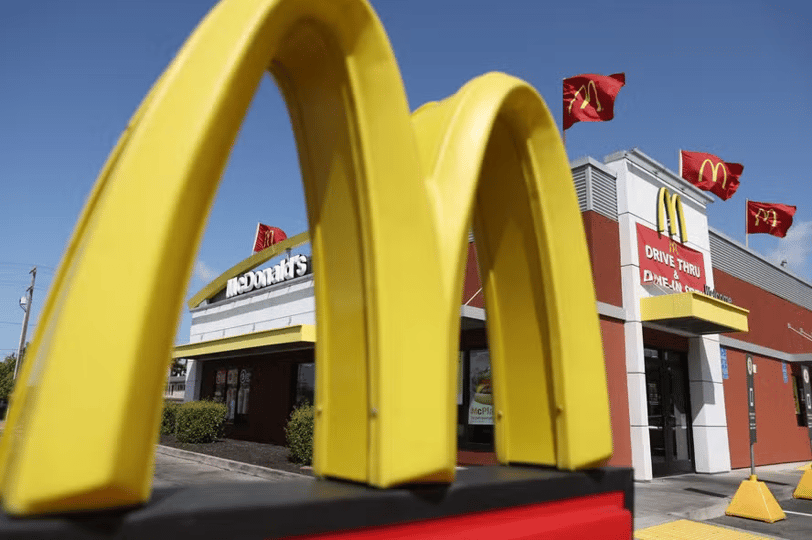McDonald's Faces Steepest U.S. Sales Decline Since Pandemic: Inflation, Discounts, and Consumer Confidence Crisis
McDonald's reported a 3.6% decline in U.S. same-store sales in Q1 2025, marking the steepest drop since the COVID-19 pandemic. The downturn is attributed to persistent inflation, reliance on discounts, and an E. coli outbreak that impacted consumer confidence. Despite this, international sales grew, driven by markets like Japan and the Middle East.


McDonald's sales fell 1% in the second quarter — Photo: Bloomberg
McDonald's Faces Steepest U.S. Sales Decline Since Pandemic: Inflation, Discounts, and Consumer Confidence Crisis
McDonald's reported a 3.6% decline in U.S. same-store sales in Q1 2025, marking the steepest drop since the COVID-19 pandemic. The downturn is attributed to persistent inflation, reliance on discounts, and an E. coli outbreak that impacted consumer confidence. Despite this, international sales grew, driven by markets like Japan and the Middle East.
In 2025, McDonald's faced significant challenges in the United States, its largest market. Same-store sales declined by 3.6% in the first quarter, exceeding analysts' negative expectations. The company attributes this drop to persistent inflation, which reduced consumers' purchasing power, especially among low- and middle-income groups. Additionally, reliance on promotions and deep discounts, such as the $5 combo meal, pressured franchise profit margins. An E. coli outbreak linked to the Quarter Pounder sandwich also impacted customer confidence, resulting in a $14 billion loss in market value.
Additional Information:
McDonald's introduced a new value menu in January, aiming to win back cost-conscious customers. Despite challenges in the U.S., international sales rose by 0.4%, with notable growth in Japan and the Middle East. Analysts warn that reliance on discounts may further pressure franchise margins in the future.
